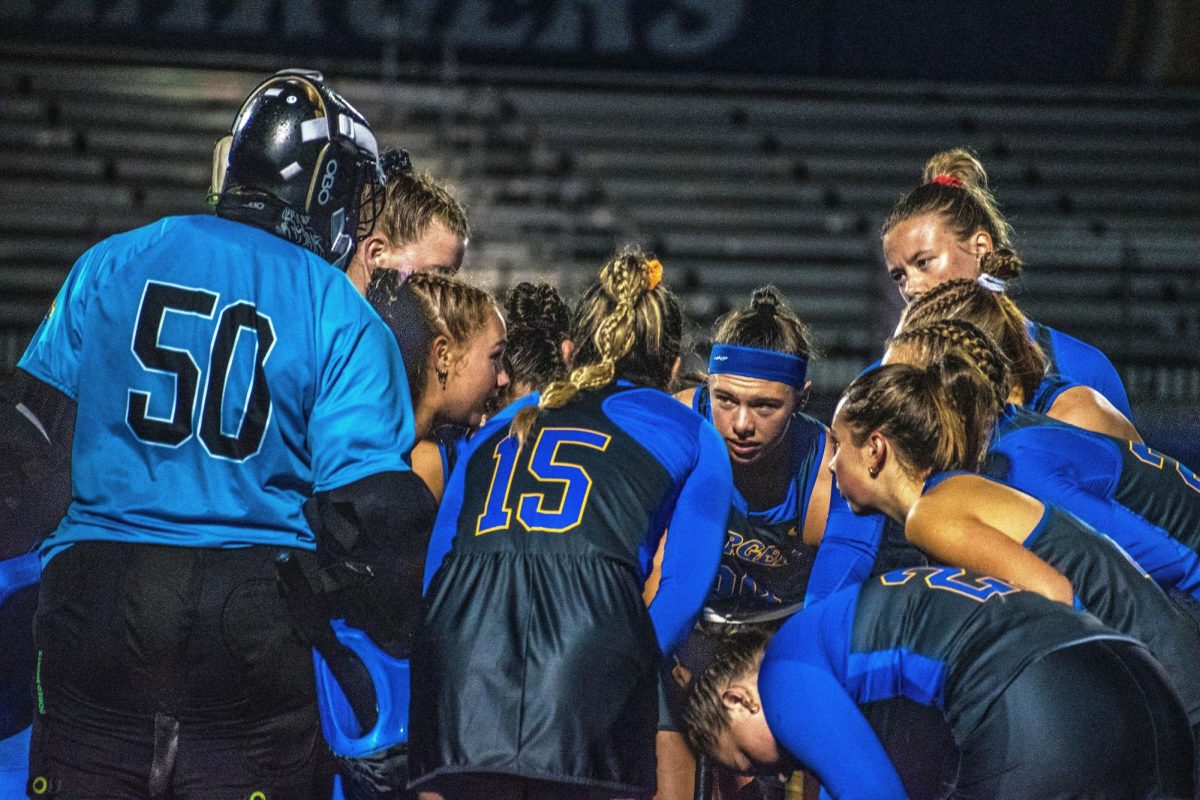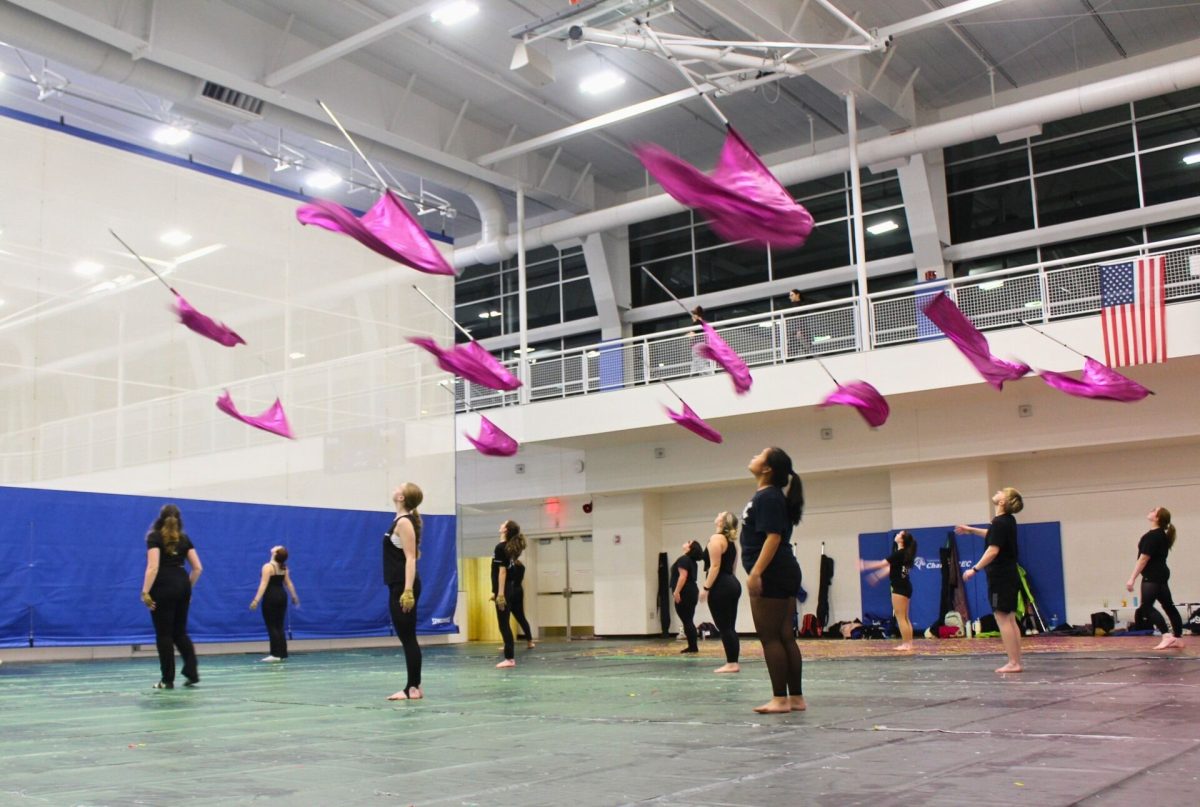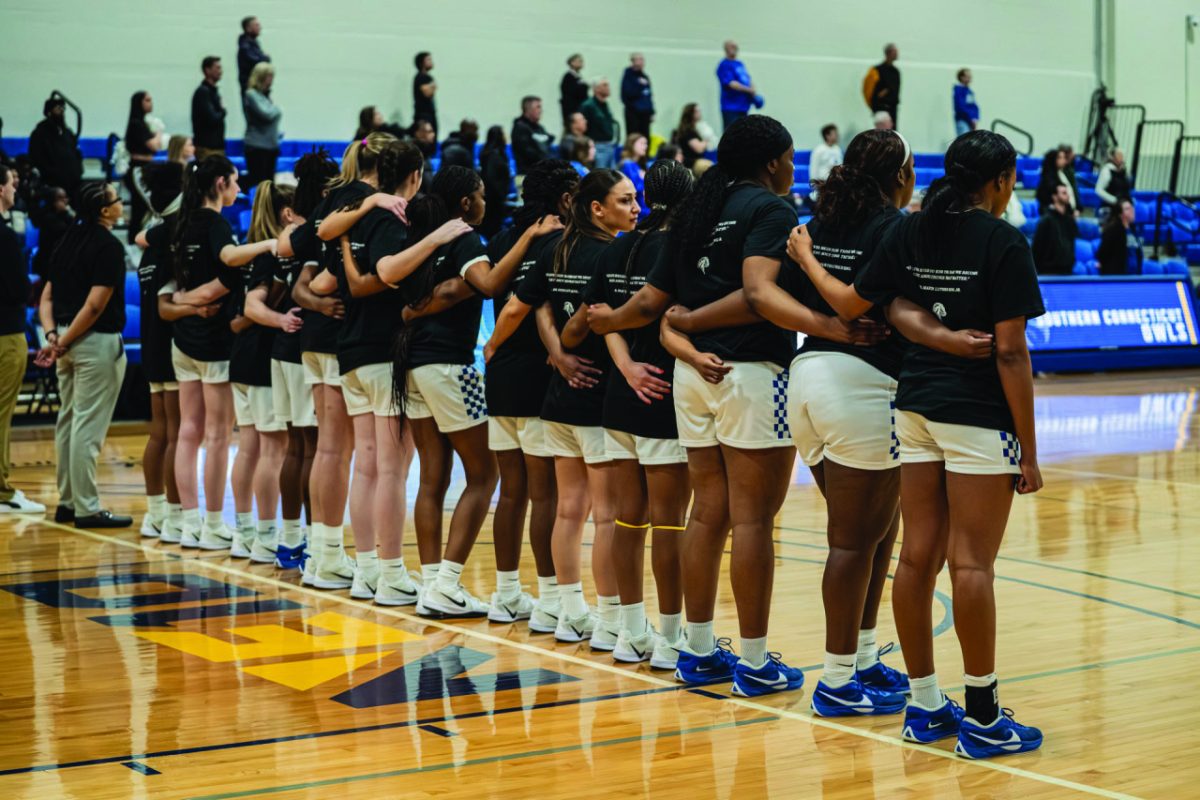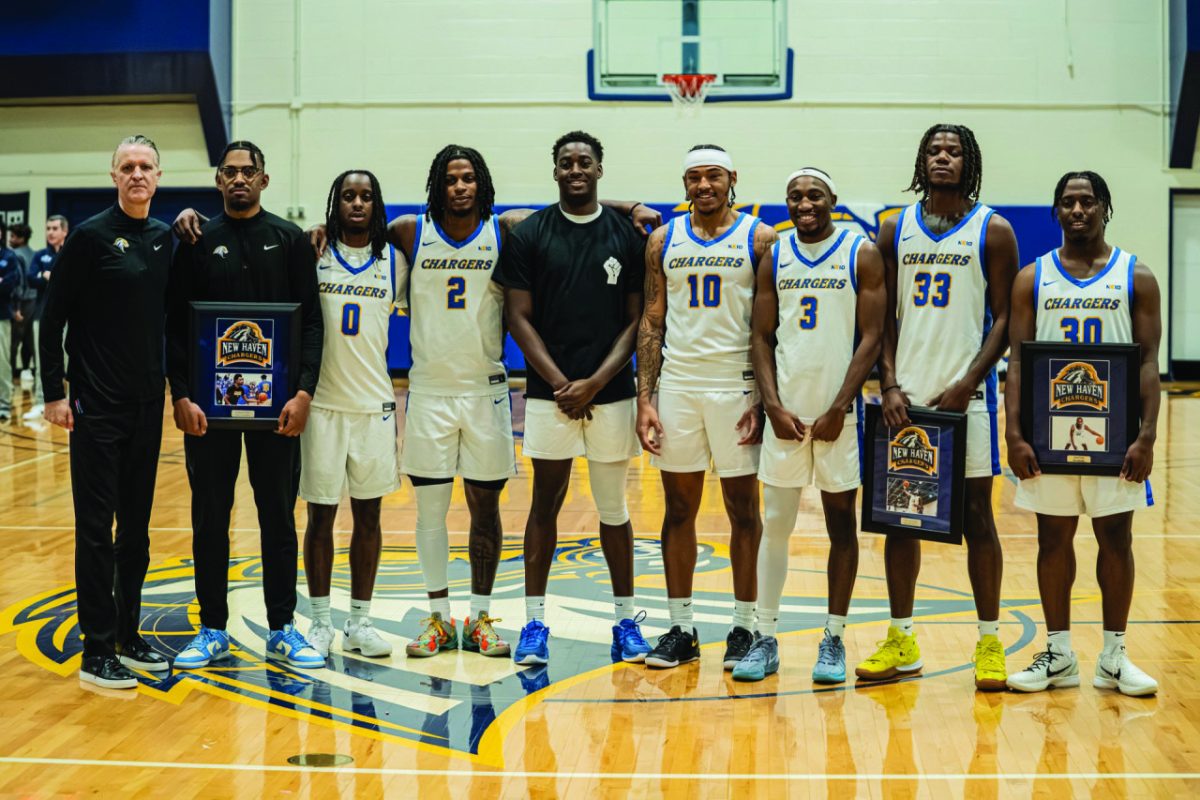Paige Garrett and Kat Trammel moved to the University of New Haven in Aug. 2020 to start their collegiate field hockey season.
A deadly virus was reshaping the world and on March 30, 2020, in the middle of the spring 2020 sports season, including sports such as track and field, baseball and softball, the National Collegiate Athletic Association (NCAA) shut everything down. Every athlete’s season abruptly ended out of safety concerns before some of the seasons even started. The NCAA Council announced they would grant another year of eligibility to spring athletes whose season was forced to come to a close. That meant spring athletes who were ready to compete in their 2020 season would be able to play another year of collegiate athletics after they graduated. According to an NCAA newsletter, the rules “limit student-athletes to four seasons of competition in a five-year period.”
And then the Northeast-10 (NE-10) conference decided on Jul. 16, 2020, that fall and winter sports in the 2020-2021 season would be canceled because of the pandemic. New Haven is a part of the NE-10 conference, so the university’s fall and winter sports were canceled for the 2020-2021 athletic season, which provided student athletes with an extra year of eligibility in sports such as field hockey, basketball, football, tennis, soccer, golf, volleyball and cross country.
“We had to change outside in tents and had to wear a mask while practicing, conditioning and lifting,” said Garrett regarding her freshman season in fall 2020. “We couldn’t use a locker room and if we wanted to get a drink of water, we had to make sure we were six feet apart from everyone else before taking off our mask.”
Trammel said she felt the restrictions impacted her relationship with the team.
“For a long time we weren’t even allowed to practice with the whole team, so I felt as if I didn’t know some of the girls on my own team,” said Trammel.
“The Council’s decision gives individual schools the flexibility to make decisions at a campus level,” said NCAA council chair M. Grace Calhoun, athletics director at the University of Pennsylvania. “The Board of Governors encouraged conferences and schools to take action in the best interest of student-athletes and their communities, and now schools have the opportunity to do that.”
Since the spring of 2021, student athletes have been using their ability to play an extra season. In the 2023-2024 athletic year, 74 athletes have used or are using their extra year of eligibility.
According to the university’s athletic department, 53 male student athletes used their extra year and 21 female athletes used theirs. The team with the highest number of athletes using their extra year was football with 36. Baseball and men’s track and field both have five athletes extending their athletic careers because of COVID. Women’s basketball and lacrosse both have four athletes.
Field hockey had just two athletes use their COVID year this past season. Ally Saigh and Hallie Reiger, both transfers, came to New Haven to play one last season of field hockey. For the upcoming 2024 season, Garrett and Trammel will use their extra year.
In addition to challenges in their sport, Garrett and Trammel faced other first-of-their-kind obstacles during their freshman year of college.
“Classes were either all online or a hybrid schedule, which was one day online and one day in person,” said Trammel. “I feel as if it really hindered my learning which was the foundation of the rest of my degree and it made it more difficult than it needed to be in the following years. I feel as if it is still affecting my work ethic and study methods today.”
Garrett said she struggled socially with the university’s restrictions.
“I was 3.5 hours away from home living with people I never met,” she said. “We couldn’t have guests in our rooms. If we wanted to eat with friends we had to eat outside, even when it was winter.”
The two teammates decided at the end of this past field hockey season they would continue to play field hockey using their COVID eligibility year.
“I never thought I’d take my COVID [year] but every year I grew to love the team and everything that came with the sport more and more,” said Garrett. “I couldn’t see myself ending my athletic career with the way our season ended.” The team ended with a 5-13 record and it was Garrett’s first time to not go to the NE-10 playoffs in her collegiate career.
“With only playing three real seasons, I felt as if my time wasn’t up,” Trammel said. “It all went so fast, and I would have left so much unfinished if I had not decided to stay. This past season did not pan out how I wanted and want one more chance to leave it all out on the field.”
Garrett will graduate this spring with a degree in psychology and a concentration in forensic psychology. Her studies will continue in a two-year master’s program in investigations. Trammel is a forensics major and is in the 4+1 program that will allow her to get both a bachelor’s and master’s degree in five years.
According to a 2022 National Library of Medicine study, 237 athletes were asked how they planned to use their year of eligibility academically. Out of the pool of athletes, 86 said they would pursue graduate school, 91 said a minor degree, 34 would double major and 26 would pursue an internship.
Audrey Larson, a psychology major with a concentration in forensics, decided not to stay for her fifth year.
“This wasn’t the right path for me because staying would have only made sense if I was interested in getting a master’s degree from the university, which I was not,” said Larson.
Trammel said she understands that “if someone felt like taking their fifth year would not benefit them emotionally, physically or financially then I think it is their own decision to walk away.”
The 2024-2025 athletic season will be the last year COVID-eligibility years for athletes in NCAA-affiliated schools. The class of 2024 student athletes are the last to be affected by the pandemic.
“Your athletic career will come to an end eventually so take every opportunity presented to you while you still can,” said Garrett. “I’d rather regret doing it than regret not doing it and left to wonder what my fifth year would’ve been like.
Erin Smith is a member of the New Haven field hockey team.
A look into COVID-19 eligibility for New Haven student-athletes
#15 Paige Garrett talking to the team, West Haven, Oct. 7, 2023.
0
More to Discover







